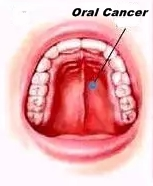Health
If you also do color in hair, then read the damage caused by it
A large amount of chemicals are found in these color processes. Which can harm your hair as well as health. Let us tell you about the loss…

In today’s time, many people are doing hair coloring in their hair. If someone’s hair turns white, because of this, if someone gets it done, then someone gets it done as a fashion. But do you know that getting colored hair gives lot of beauty outside, but there is a lot of damage too. A large amount of chemicals are found in these color processes. Which can harm your hair as well as health. Let us tell you about the loss of color and how to keep hair healthy.
Disadvantages of Color
Also Read: Best diet plan to lose weight: GOLO diet is the number one diet to reduce obesity
- Due to the chemical in the color, there may be an allergy on your skin. This can cause swelling, rashes, and irritation.
- The color contains hydrogen peroxide, which is extremely harmful for your hair. This may cause hair breakage and weakening.
- Ammonia is found very much in hair coloring products. It is harmful to your eyes, lungs and respiratory health. It can be very painful for people with asthma and breathing problems.
Here’s how to do hair care
By the way, by doing hair color, personality also emerges, but do not get hair color done very soon, at least after 3 to 4 months. If your hair is not very white then use mehndi instead of color and if it is too white then only use color. The color may be of good quality but it is always chemical.
- Haircut should be done at an interval of 2 to 3 months. Even if you get a little trim from the bottom. By doing this, the hair looks thick and there are no bunches. Hair color remains and grows quickly.
- Do not use the dryer too much. This causes the hair to become damaged and break.
Also Check: 5 Ways to Heal Your Self and Boost Your Spiritual Health
- Massage well with coconut or almond oil once or twice a week. By doing this, there is good blood circulation in the head, which makes hair healthy. At the same time, the hairiness is also removed.
- Hair should not be washed daily in winter. Hair becomes lifeless. Hair should be washed 2 or 3 times a week. If you have very oily hair, skip a day and shampoo. If you have curly hair, then use dry hair shampoo twice.
- When you go outside during winter, keep the hair covered, because by doing this the hair will not become dry and will remain shiny. Apply sunshine there as well, but do not think that you have been sitting in the sun for many hours. This will cause hair damage.
Health
Future-Proofing Your Healthcare: What to Expect from Medicare Advantage Plans in 2025

Navigating the complex landscape of healthcare can be a daunting task, especially for those entering the golden years of retirement. While Medicare has been a stalwart in providing medical coverage for seniors for decades, the system is continually evolving. This evolution is not simply a matter of policy revisions; it’s a holistic change that encompasses advancements in technology, patient care, and the very nature of how we approach health and wellness Medicare Advantage plans 2025.
In this comprehensive look into the future, we’ll explore how Medicare Advantage plans are poised to redefine the healthcare experience for millions of Americans. We’ll touch on emerging trends, potential challenges, and the ways in which beneficiaries can proactively engage with their healthcare to ensure optimal outcomes well into the mid-2020s and beyond.
A Shift in Focus: Proactive Health Management
Historically, healthcare has been infamous for being reactive, with a strong emphasis on treating illnesses and injuries once they’ve manifested. However, an overarching shift towards a proactive model is on the horizon, and it’s expected that Medicare Advantage plans will champion this transition.
Telemedicine on the Rise
One of the most notable changes in healthcare delivery is the meteoric rise of telemedicine. Patients and caregivers are becoming increasingly comfortable with remote consultations and monitoring, thanks to the integration of user-friendly technologies. This has significant implications for Medicare Advantage, which can potentially offer more accessible and regular health services through telehealth platforms, thereby reducing barriers to care.
Personalized Wellness Programs
Another critical component of proactive care that is on the rise is personalized wellness programs. Medicare Advantage plans are expected to expand their offerings, providing tailor-made regimes for beneficiaries that encompass nutrition, exercise, stress management, and more. These programs will focus on individualized goals, which can potentially lead to improved health and reduced reliance on acute care services.
The Integration of Technology and Data
The future of Medicare Advantage is intrinsically linked to technological advancements and the harnessing of vast amounts of health data. This integration could transform the way healthcare is delivered and received.
AI and Predictive Analytics
Artificial intelligence (AI) and predictive analytics have the potential to revolutionize patient care. By analyzing data from various sources, these tools can identify high-risk individuals and intervene proactively to prevent adverse health events. Medicare Advantage plans are likely to incorporate these technologies to develop more robust care management strategies, ultimately improving outcomes for beneficiaries.
Blockchain for Secure Health Records
Another burgeoning technology that could make a significant impact in healthcare is blockchain. Its immutable and secure nature makes it an ideal candidate for storing and sharing health records. Medicare Advantage may adopt blockchain to provide beneficiaries with more control over their health data, fostering increased transparency and trust in the healthcare system.
The Emergence of Home Healthcare
The push for a more patient-centric approach has given rise to the concept of home healthcare, which is rapidly gaining popularity. Medicare Advantage plans are expected to play a pivotal role in the expansion and refinement of services aimed at keeping seniors healthy and independent in their homes for as long as possible.
Remote Monitoring Devices
Advances in remote monitoring devices allow healthcare professionals to keep a closer eye on patients’ vital signs and health indicators without the need for frequent hospital visits. This not only enhances the quality of care but also empowers beneficiaries to take more control of their health by actively managing their conditions with the support of their Medicare Advantage plan.
In-home Care Services
The array of in-home care services covered by Medicare Advantage is projected to grow significantly. From skilled nursing to physical therapy, seniors can expect a broader spectrum of professional care delivered directly to their door, promoting a more comfortable and familiar environment for recovery and maintenance of their health.
Enhanced Prescription Drug Coverage and Better Drug Management
Prescription drug costs continue to be a major concern for seniors, spurring Medicare Advantage plans to seek new ways to provide affordable access to necessary medications.
Expanded Drug Formularies
Medicare Advantage plans in 2025 are expected to have expanded drug formularies, with more medications covered at no or low cost to beneficiaries. This move would help in the management of chronic conditions and alleviate the financial burden on seniors.
Innovative Drug Management Programs
Innovative drug management programs will also come to the fore, with a focus on preventing adverse drug interactions and promoting adherence to treatment regimens. By providing comprehensive support and education, Medicare Advantage plans can ensure that beneficiaries are obtaining the full benefits of their prescribed medications.
Addressing Social Determinants of Health
Health outcomes are not solely determined by medical interventions; social and environmental factors play a significant role. Medicare Advantage plans are anticipating these insights by taking on a broader view of health and addressing the social determinants that impact their beneficiaries.
Community Health Partnerships
Partnerships with community organizations are poised to grow, with the aim of increasing access to healthy food, transportation, and housing for seniors. These collaborations will empower Medicare Advantage plans to offer a more comprehensive approach to healthcare, recognizing the influence of social determinants on overall health.
Incentive Programs for Healthy Behaviors
To encourage healthier lifestyles, Medicare Advantage plans might introduce incentive programs that reward beneficiaries for engaging in activities that promote wellness. These could range from routine exercise to participation in community health initiatives, fostering a culture of prevention and wellness.
Overcoming Challenges to Future-Proof Healthcare
Despite the promising trajectory, Medicare Advantage plans in 2025 will face their share of challenges. It’s crucial to address these hurdles head-on to ensure the sustainability and effectiveness of future healthcare systems.
Ensuring Equitable Access to Innovations
One of the primary challenges will be to ensure that the benefits of healthcare innovations are equitably distributed. It’s imperative that Medicare Advantage plans remain accessible to all eligible beneficiaries, regardless of socioeconomic status, geography, or digital literacy, to prevent a healthcare ‘digital divide’.
Regulatory Adaptation
The pace of technological and medical advancements can often outstrip regulatory bodies’ ability to keep up. Medicare Advantage plans will need to be agile in navigating this landscape, advocating for policies that support innovation while ensuring patient safety and the integrity of healthcare delivery.
Financial Sustainability
The expansion of services and the integration of advanced technologies come at a cost. Medicare Advantage plans will need to strike a delicate balance between offering comprehensive benefits and maintaining financial sustainability. This may involve the exploration of new reimbursement models and cost-sharing arrangements with beneficiaries.
Beneficiary Engagement and Empowerment
The most important component in future-proofing healthcare is the role of the beneficiary. In 2025 and beyond, Medicare Advantage plans will continue their efforts to engage and empower seniors in their health management.
Tools for Informed Decision-Making
Beneficiaries can expect more tools and resources to help them make informed decisions about their healthcare. These might include decision aids, educational materials, and access to a variety of healthcare professionals who can provide guidance on treatment options and care strategies.
Advocacy for Personalized Care Plans
Medicare Advantage plans will increasingly advocate for personalized care plans, tailored to the specific needs and preferences of each beneficiary. Engaged participants can look forward to being active partners in creating and adjusting these plans, fostering a sense of ownership over their health and well-being.
The Role of Advocacy Groups
Support from local and national advocacy groups will be crucial in ensuring that beneficiaries are at the forefront of healthcare delivery. These groups will work to amplify the voices of seniors, championing their rights and promoting policies that align with their needs and priorities.
The Role of the Care Team in Future Healthcare
The care team is set to undergo a significant evolution as healthcare systems become more integrated and patient-centered. In 2025, Medicare Advantage plans will play a pivotal role in orchestrating these changes, creating a more cohesive and effective care experience.
Enhanced Interdisciplinary Collaboration
Collaboration between healthcare professionals, both within and outside of traditional medical settings, will become more streamlined. Medicare Advantage plans will facilitate these connections, ensuring that the entire care team is working in concert to achieve the best possible outcomes for beneficiaries.
Leveraging Advanced Communication Technologies
The use of advanced communication technologies will allow for more frequent and meaningful interactions between members of the care team and with patients. This can lead to better coordination of care, improved patient satisfaction, and ultimately, health enhancements.
Empowering Patients as Part of the Care Team
Patients will be increasingly recognized as integral members of the care team. Medicare Advantage plans will empower beneficiaries to take an active role in their healthcare, providing the knowledge, tools, and support needed to collaborate effectively with their providers.
Conclusion: Preparing for a Brighter Healthcare Future
The landscape of healthcare is set to transform over the coming years, and Medicare Advantage plans are at the vanguard of this evolution. By focusing on proactive health management, integrating technology and data, expanding home healthcare, enhancing prescription drug coverage, addressing social determinants of health, and engaging beneficiaries, these plans are paving the way for a brighter future in senior care.
Though challenges lie ahead, the potential for positive change is immense. By staying informed, involved, and open to new possibilities, beneficiaries can look forward to a healthcare system that not only meets their needs but also surpasses their expectations. The future of Medicare Advantage in 2025 and beyond is one of partnership, innovation, and a steadfast commitment to the well-being of seniors—a future worth preparing for today.
Health
Indian research demonstrates effectiveness of whole-genome sequencing in early detection of drug-resistant TB

New Delhi, April 16 (IANS) India aims to eliminate tuberculosis (TB) by 2025, with whole-genome sequencing (WGS) playing a crucial role. A study by HaystackAnalytics and Dr. D.Y. Patil Medical College in India uncovered high rates of drug-resistant TB, particularly pre-XDR-TB.
Tuberculosis, the second leading infectious disease killer globally, has over 2.95 million active cases in India, with 135,000 classified as multidrug-resistant TB. The study analyzed data from 600 patients, revealing alarming levels of drug resistance.
Researchers found that 50.83% of cases had pre-XDR-TB and 15.5% had MDR-TB, with resistance to multiple key antibiotics. Dr. Anirvan Chatterjee, CEO of HaystackAnalytics, emphasized the importance of WGS in early diagnosis and treatment of drug-resistant TB.
Moreover, the study highlighted a concerning trend of drug resistance among younger age groups, with 55% of cases in the 15-35 age range and 67% in the under-14 age group showing pre-XDR TB. This raises productivity and transmission concerns, further underscoring the need for advanced diagnostic tools like WGS.
Dr. Chatterjee stressed the significance of WGS in identifying drug resistance to multiple antibiotics in a single test, which can lead to shorter therapy and improved outcomes. Early detection and appropriate treatment are essential in reducing transmission and ultimately eliminating TB cases, making WGS a vital tool in the fight against the disease.
Health
The reason behind the increasing number of oral cancer cases in India

India bears a significant burden of oral cancers, accounting for about 30 per cent of all global cases, as per doctors. April is Oral Cancer Awareness Month. Also known as mouth cancer, the disease is the most common form of head and neck cancer affecting older adults, with an increasing incidence among young adults.
Dr. Sowrabh Arora, Senior Director – Surgical Oncology (Head & Neck), Max Hospital, Vaishali, stated, “Oral cancer is a significant health concern in India, ranking as the second most common cancer overall and the most common among males.” Dr. Mohit Saxena, Senior Consultant – Medical Oncology, Marengo Asia Hospital, Gurugram, added that 70 per cent of cases are diagnosed at an advanced stage.
The rise in oral cancer cases is attributed to factors like tobacco use, chewing betel nuts, excessive alcohol consumption, HPV infection, weak immune system, poor nutrition, excess body weight, and sun exposure. Dr. Sowrabh emphasized the need for awareness campaigns and preventive measures to curb the rising prevalence, especially among the younger population.
Early detection is crucial for better outcomes. Dr. Mohit advised being vigilant of symptoms such as mouth ulcers, patches, swelling, difficulty swallowing, hoarseness, neck swelling, and weight loss. Prevention strategies include tobacco and alcohol abstention, safe sex practices, sunscreen use, and regular oral screenings.
With the pressing need to address the root causes of oral cancer and increase awareness, doctors stress the importance of preventive measures and early detection. Awareness campaigns and regular screenings can aid in curbing the rising prevalence of oral cancer, especially among the younger population.

 Photos1 week ago
Photos1 week ago40+ Sassy Poonam Hot and Sexy Photos: Top Bikini Pics

 Entertainment6 days ago
Entertainment6 days ago9 Kamalika Chanda Web Series List (18+ Only)

 Photos5 days ago
Photos5 days agoShraddha Arya Hot and Sexy Pics: 20 Times Kundali Bhagya Actress Flaunted Her Sexy Curves in Raunchy Swimsuits

 Viral1 week ago
Viral1 week agoShanin Blake’s OnlyFans Leak Leads To Concern Over Social Media Privacy

 Entertainment3 days ago
Entertainment3 days ago8 Sapna Sharma Hot Web Series for 2024 (18+ Only)

 Entertainment1 week ago
Entertainment1 week ago(18+ Only) Zoya Rathore Web Series List for 2024

 Photos5 days ago
Photos5 days ago35+ Sofia Ansari’s Latest Hot and Sexy Photos Will Leave You In Awe

 Entertainment6 days ago
Entertainment6 days ago19 Sexiest Muskan Agarwal Web Series List (2024)















